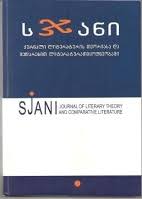Ассирийские переводы пьес Мольера в Грузии
Assyrian Translations of Molière’s Plays in Georgia
Author(s): Anna Muradova, Rusudan TurnavaSubject(s): French Literature, Translation Studies, Theory of Literature
Published by: ლიტერატურის ინსტიტუტის გამომცემლობა
Keywords: Assyrian manuscripts; the sssyrians in Georgia; Molière in assyrian; turkish and georgian; translations and adaptations;
Summary/Abstract: The paper analyses for the first time the manuscripts of the Assyrian translations of five plays by Molière, which are preserved at the National Archives of Georgia (Collection 480, description 2). Each manuscript was deciphered and compared with the French original. It was identified that three plays – George Dandin (George Dandin, or the Abashed Husband), Le Malade imaginaire (The Imaginary Invalid) and L’Avare (The Miser, or, the School for Lies) represent more or less adequate translations) (translated by Zaaia Bit Evazi, Freidun Aturaia, Folus Bit Sargis), whereas the other two – Les Fourberies de Scapin (The Impostures of Scapin) and Le Medecin malgré lui (The Doctor in Spite of Himself) are adaptations (authors Kasha Mush Babila and Jala Babu Bit Malika). The manuscripts are dated to 1912-1914. The 12 posters, preserved at the Georgian Art Palace (Museum of Theatre), confirm that Molière’s plays in the Assyrian language as well as some original plays by Assyrian authors (A Broken Heart, script – O.Bit-Pira; The Devil and an Old Man – T.Tkhumnaia) were staged in 1912-1920, at the Zubalashvili Public House (the present-day K. Marjanishvili Theatre). The Zubalashvili House became an international theatre for Tbilisi troupes, where actors of the Georgian, Assyrian, Armenian and other nationalities offered their performances.
Journal: სჯანი
- Issue Year: 2019
- Issue No: 20/2
- Page Range: 116-138
- Page Count: 23
- Language: Russian

